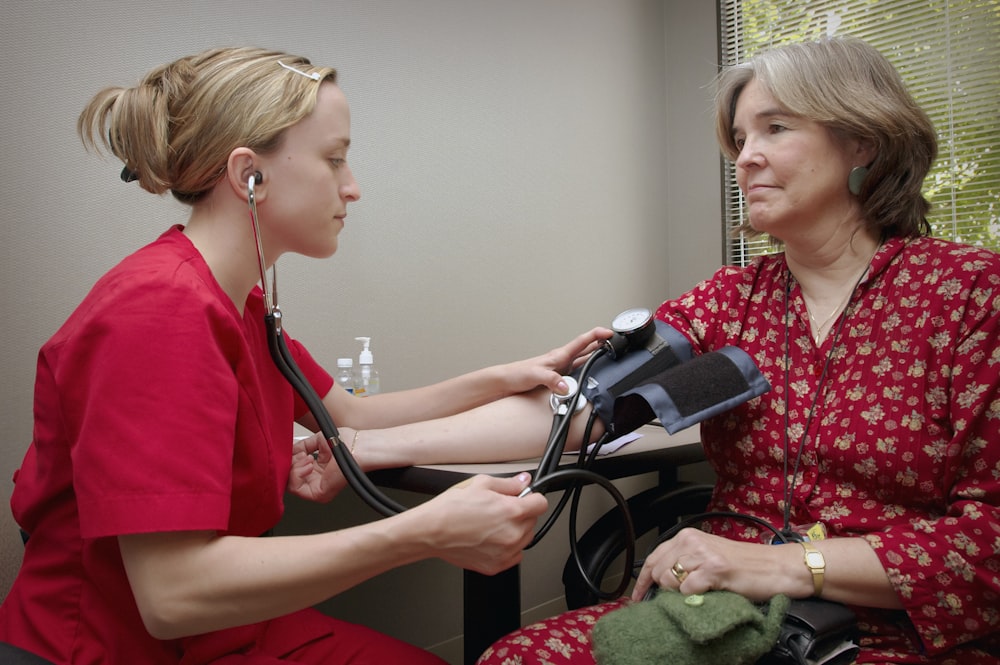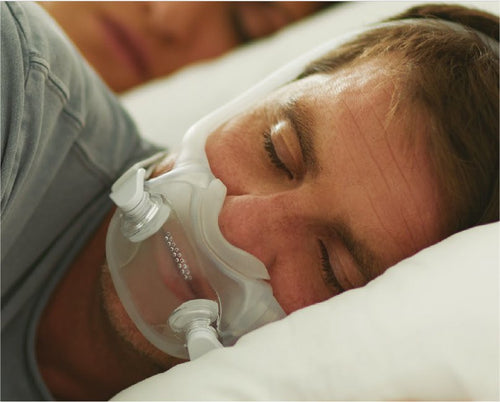Sleep apnea can have a wide-ranging influence on your overall health and well-being. After all, a single night of bad sleep can leave you feeling irritable, fatigued, and lacking energy to stay focused on work like normal. Sleep apnea can make such feelings even worse, by keeping you from ever being able to consistently get a good night’s sleep.
Long-term, this can result in a lot of problematic side effects that can really mess with your health.
The good news is that a CPAP machine can help. Thanks to the continuous flow of pressurized air provided by a CPAP machine, you can avoid breathing interruptions that disrupt sleep and leave you feeling exhausted the next day.
Using a CPAP machine won’t just help you sleep better. It can also help improve a variety of side effects linked to untreated sleep apnea, greatly improving your overall quality of life.
CPAP and Asthma
As we’ve written about recently, using a CPAP machine can help alleviate asthma symptoms that are related to sleep apnea. Individuals with sleep apnea are more likely to develop asthma than the general population, and the added irritation of the bronchial tubes can even contribute to nighttime asthma attacks. Because both asthma and sleep apnea can cause irritation of the airways, the two conditions can actually make each other worse without proper care.
However, using a CPAP machine has been found to make the bronchial tubes larger, while also making them less sensitive and less prone to irritation. Using a humidifier with your CPAP machine can further enhance the effectiveness of CPAP treatment in reducing the severity of asthma in individuals with obstructive sleep apnea.
Reducing Chronic Cough and Heartburn

Untreated sleep apnea makes you three times as likely to develop acid reflux. This occurs when the body tries to counter the airflow obstruction that occurs during sleep apnea, which often results in opening the valve between the stomach and food pipe. This makes it easier for acid reflux to get to the esophagus, which can worsen both heartburn and chronic cough.
However, research shows that using a CPAP machine makes you 42 percent less likely to have nighttime heartburn, while also greatly reducing your risk for chronic bronchitis and for having a morning cough with mucus. People who were compliant with their CPAP therapy were also less likely to experience common nighttime side effects related to heartburn and chronic cough, such as belching or wheezing.
There is also some evidence that CPAP compliance can even help relieve daytime symptoms for heartburn and chronic cough, allowing for more comfortable breathing.
Protection Against Conditions Linked to Poor Sleep

It shouldn’t come as much of a surprise that sleep apnea, as a sleep disorder that directly affects breathing, can also contribute to or worsen other breathing disorders if it isn’t treated properly. But the lack of quality sleep that occurs when you don’t take steps to manage sleep apnea can be even more problematic in the long run, causing significant harm to your physical and mental health.
For example, obstructive sleep apnea has been found to increase the risk for several serious physical ailments. This includes heart disease, stroke, high blood pressure, and type 2 diabetes. A lack of sleep can heighten stress levels in the body, keeping blood pressure from going down at night like it normally does during sleep.
While these conditions can also be influenced by other lifestyle factors, such as your weight and general fitness level, a lack of sleep can make them even worse and lead to additional complications, including an increased risk for early death. However, studies have shown that CPAP treatment helps lower both daytime and nighttime blood pressure.
Similar outcomes can be observed with mental health. Left untreated, sleep apnea can increase the risk for and severity of mental health conditions such as depression and anxiety. These conditions can disrupt relationships, hurt workplace performance, and even lead to additional sleep disruptions. These issues can be countered by using a CPAP machine to keep sleep interruptions related to sleep apnea under control.
While using a CPAP machine will not address mental health issues related to chemical imbalances, it can at least help ensure that sleep deprivation does not become a contributor to mental or emotional challenges.
Use a CPAP Machine to Sleep and Feel Better!
Everyone feels better after a good night’s sleep. By using a CPAP machine to keep your sleep apnea episodes in check, you won’t just feel better when you wake up in the morning. You’ll be able to improve related conditions like asthma, heartburn, chronic cough, while also reducing your risk for serious issues like heart disease.
Of course, depending on the nature of your health ailments, you may need to undergo additional lifestyle changes as well to get your health to where it needs to be. Consult with your doctor to develop a personalized plan based on your specific needs and conditions so that you can maximize the potential of using a CPAP machine and other healthy choices.
Following through with CPAP therapy can be a true game-changer for your overall well-being, but getting the equipment you need to manage sleep apnea can be tricky if you don’t have good health insurance. This is where Help Medical Supplies comes in. With discounted prices on CPAP machines, masks, and more, you can save hundreds of dollars on your next purchase of this essential medical equipment. That’s sure to help you sleep better!

